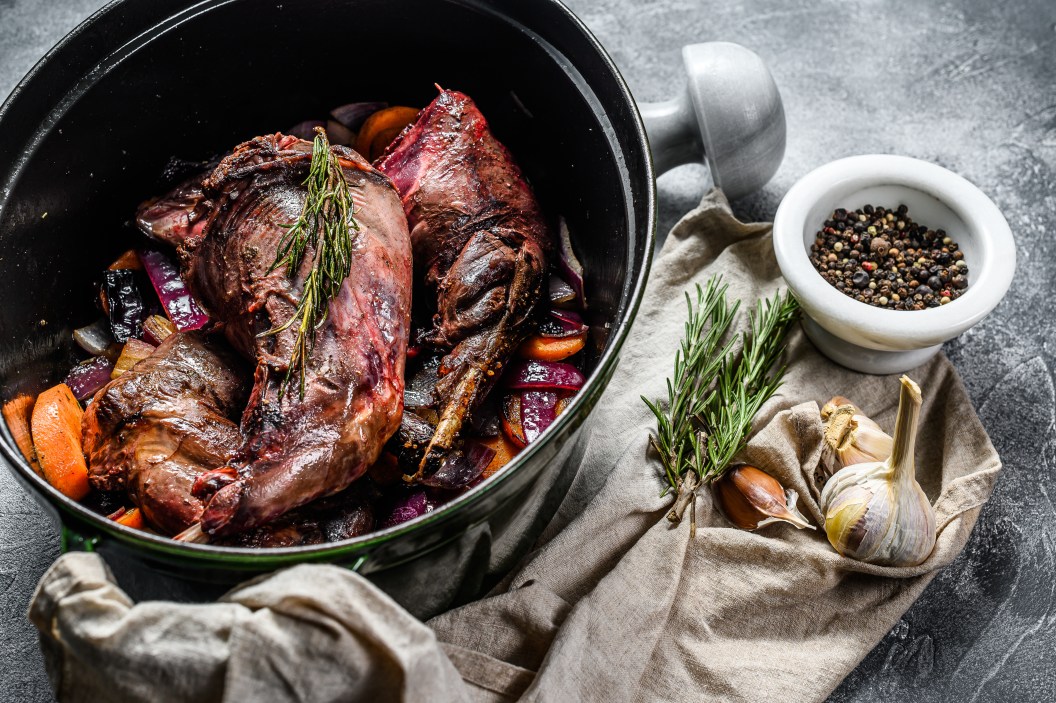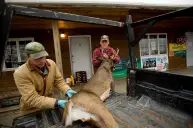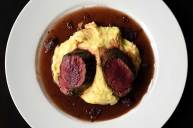After spending hours in a blind or tree stand waiting for the perfect shot, the last thing you want is a gamey taste ruining your wild game meat. Of course, if people are used to eating different types of meat, wild game will automatically taste different. Similarly, fresh pork or beef smells and tastes slightly different than the domesticated meat you buy shrink-wrapped off the grocery store shelf. Domesticated animals have a distinctly different taste due to their diet and surroundings, which puts their flavor at odds with wild animals.
One reason antelope, grouse, quail, and mule deer all can have a naturally strong flavor is their varied diet and age—but wild game may also have a gamey flavor from poor handling.
While a gamey meat taste may not be completely unavoidable, there are some things you can do to reduce it, especially when it comes to processing. The last thing you want is that notorious funk plaguing many wild meats. We compiled some kitchen-tested hacks for cooking venison, elk, or other game animals to help you deliver the goods while leaving the gamey taste out.
1. Master the Field Dressing Basics
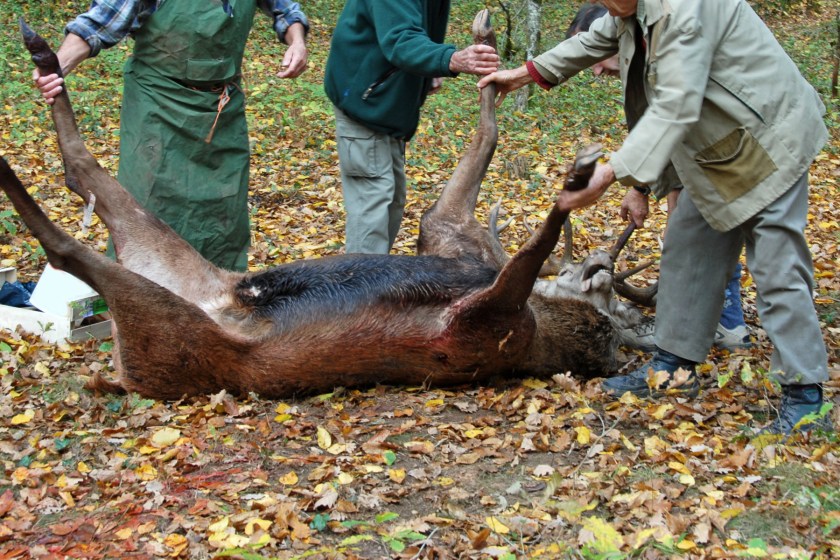
Getty Images, cynoclub
Game meats differ from farm-raised meats such as beef and chicken, yet many hunters try to cook them using the same approach. It helps to have a specific mindset while preparing wild meat. Do everything you can, from field to fork, to ensure that meat is the best it can be.
The first step in avoiding gaminess in wild game starts in the field. Getting the animal gutted and cooled as quickly as possible is the key to securing a great taste from your harvested game meat. The longer the animal lies in the field—particularly overnight because of a bad shot—the worse it will taste.
Enzymes quickly start breaking down inside the animal, and the warmer it is outside, the faster this process occurs. Your field dressing technique usually has the most significant influence on the taste of wild game meat.
Many hunters also believe it's necessary to hang and bleed an animal after it's been gutted. Often, these hunters seem to be over-marinating their meals, even with grass-fed beef at the summer cookout. Simply put, a shot through the vitals induces significant bleeding, which is usually all you need. This blood that remains in the muscles creates that solid taste. Put a greater emphasis on proper cleaning and efficiently getting your deer to a professional processor or your home butchering station. Do that rather than hanging it (this is especially important with deer meat).
2. Soak Your Meat
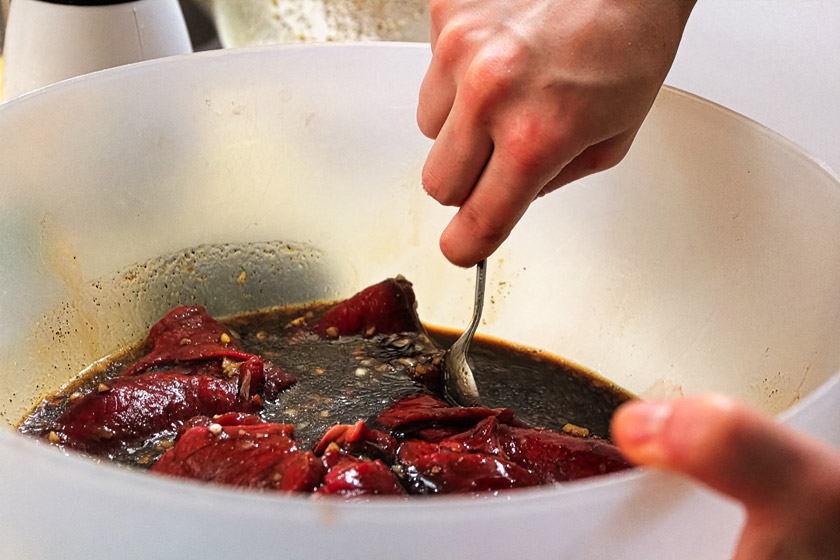
Getty Images, Akchamczuk
Here's where you'll probably find the most advice regarding preparing wild game meat. Many hunters suggest soaking your game meat in vinegar. However, vinegar's acidity can often dry the meat, making it especially tough. Instead, try soaking the meat in milk or even buttermilk, which will produce better results with most wild animals, especially when dealing with backstraps.
Many old-school cooks must do this before putting wild-game meat in a slow cooker. A saltwater brine is also a trendy choice, as the salt helps suck out a lot of the wrong flavors. Ensure you give the meat a clean water bath before cooking to avoid an overpowering taste of salt.
Marinades are also a solid remedy, and a variety is available on the market. Still, something as simple as soaking it in Italian dressing can be enough. Ultimately, this helps remove more blood from the meat, leaving only the tissue behind.
3. Remove the Silver Skin
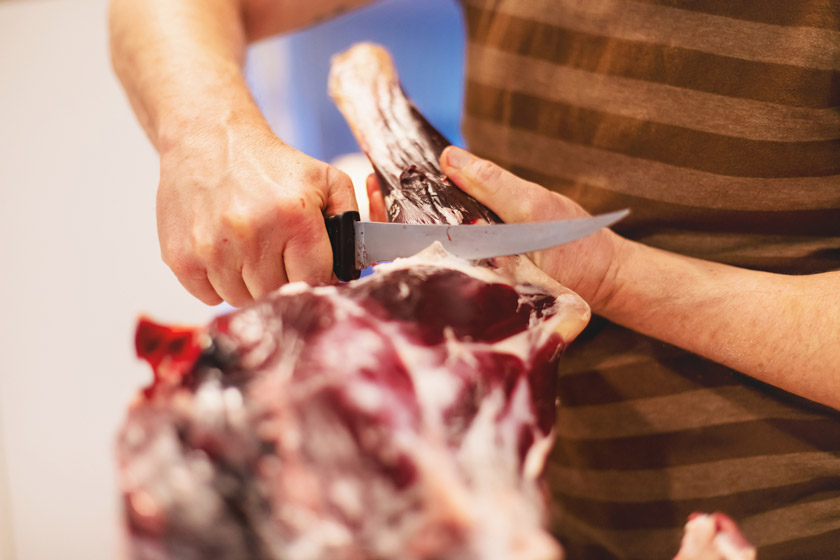
Getty Images, eyecrave productions
All these steps are essential, but if one had to be emphasized, it would be this. The silver skin on game meat lends a big gamey taste and a funky, displeasing texture. Removing the silver skin is tedious work. Do not skip this step. Take the time to remove the silver skin and other connective tissues before cooking. This will pay off when it comes time to sit down and eat. This is especially important with some game birds like pheasants.
If you have a strong gamey taste in wild game meat at your house, this may be the cause, regardless of whether any previous strategies worked. These tissues are firm and full of unwanted flavors. Use a sharp knife and cut away any visible silver skin. Turn the meat over to visually inspect all angles.
Removing the fat in red meat is a must if people in your family have a sensitive stomach when it comes to wild game. Fat is a great flavor addition in range-fed beef, but if you leave the fat from wild game, meat doesn't do much beyond making your house smell and ruin your meal.
4. Pick the Right Processor
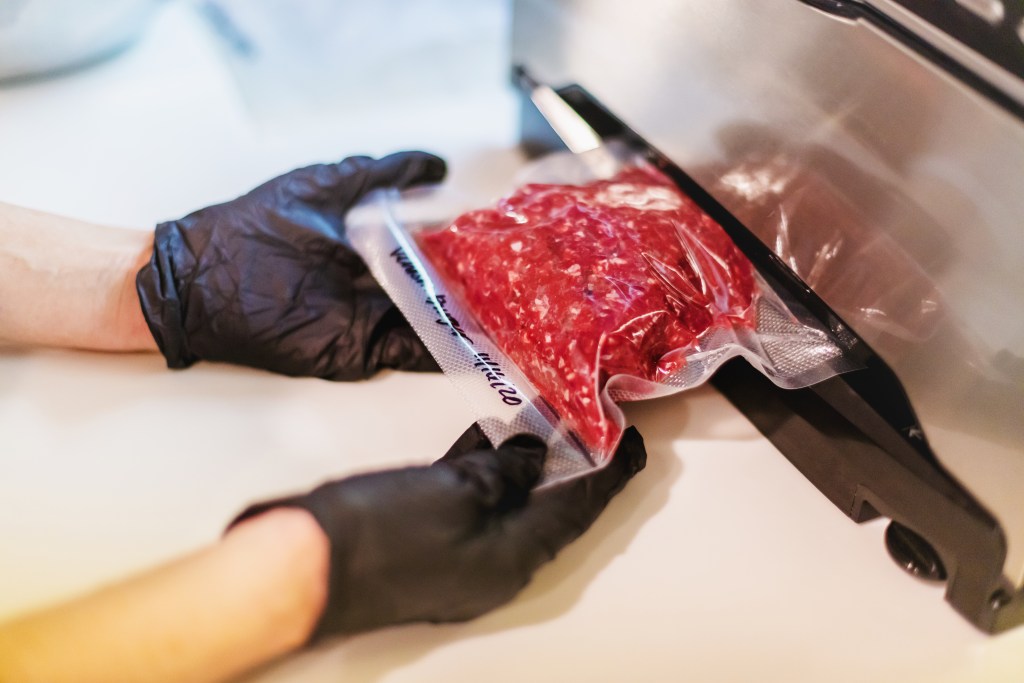
Getty Images, Eyecrave productions
Some people process their game at home. Others take it to a processor or butcher. If you bring your deer, elk, or other wild game, to someone else, do your research. Make sure they know what they are doing. You have done a lot of work to avoid contaminants and ensure your meat is the best it can be. You want someone who does quality butchering work. Also, ensure that the meat you receive will be from the animal you dropped off.
Some processors have a system of returning an equal quantity of venison from someone else's meat or a combination. This is not ideal. You may have taken time to get that harvest field dressed quickly and correctly, but who knows if the other guy did? When it comes to gaminess, that is not a good bet to place.
Also, ask about the packaging they use. Most processors use quality vacuum-sealed packaging, but it can't hurt to ensure.
5. Don't Overcook It
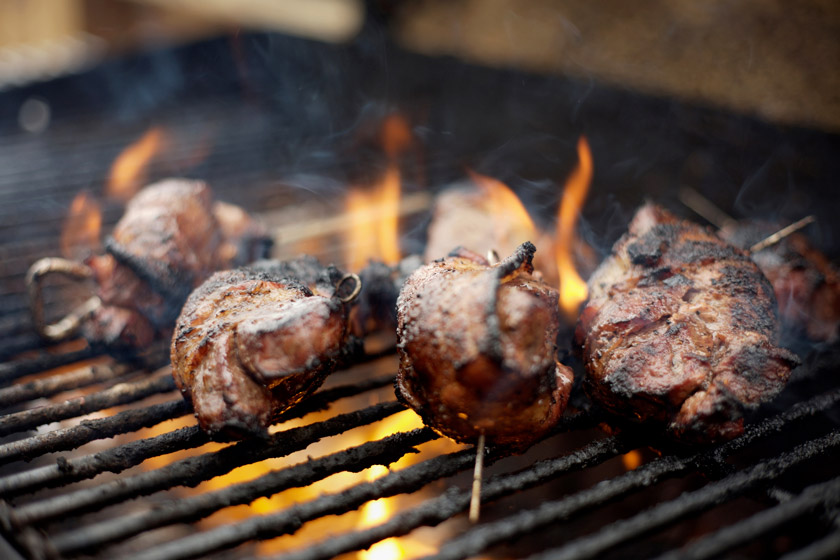
Getty Images: eyecrave productions
Overcooking wild game meat is a cardinal sin. Gaminess is amplified the more it is cooked. Low and slow is the name of the game. If you are sticking it on the BBQ, allow the low temperatures to enhance the meat flavor. For those who are used to cooking farm-raised meats, it can take some getting used to.
Any pan-seared venison needs only a little bit of time on both sides, keeping an excellent medium rare at a maximum. Because there isn't much fat, the game cooks surprisingly quickly. This might be why if you're doing all of the above and still getting a strong, gamey taste.
